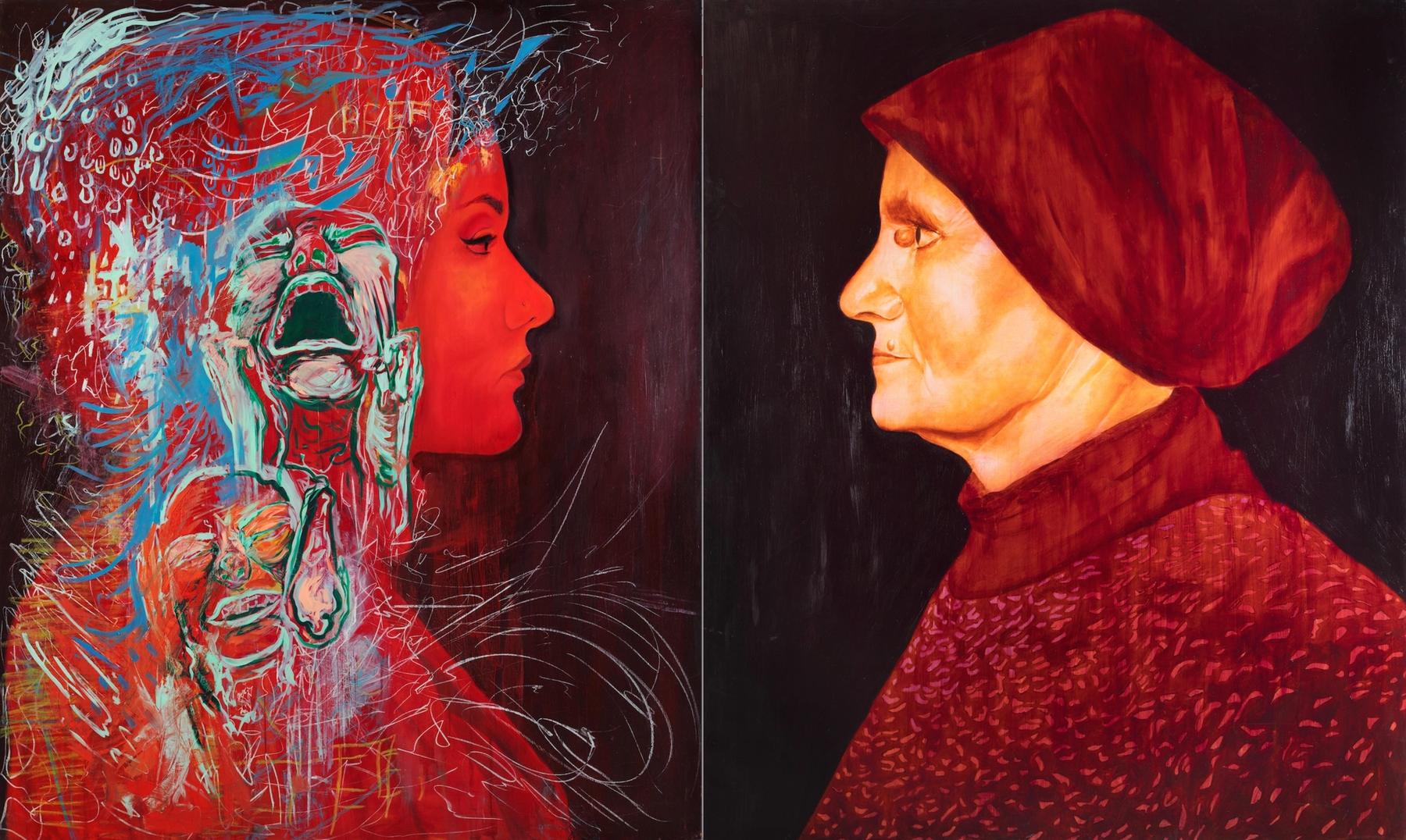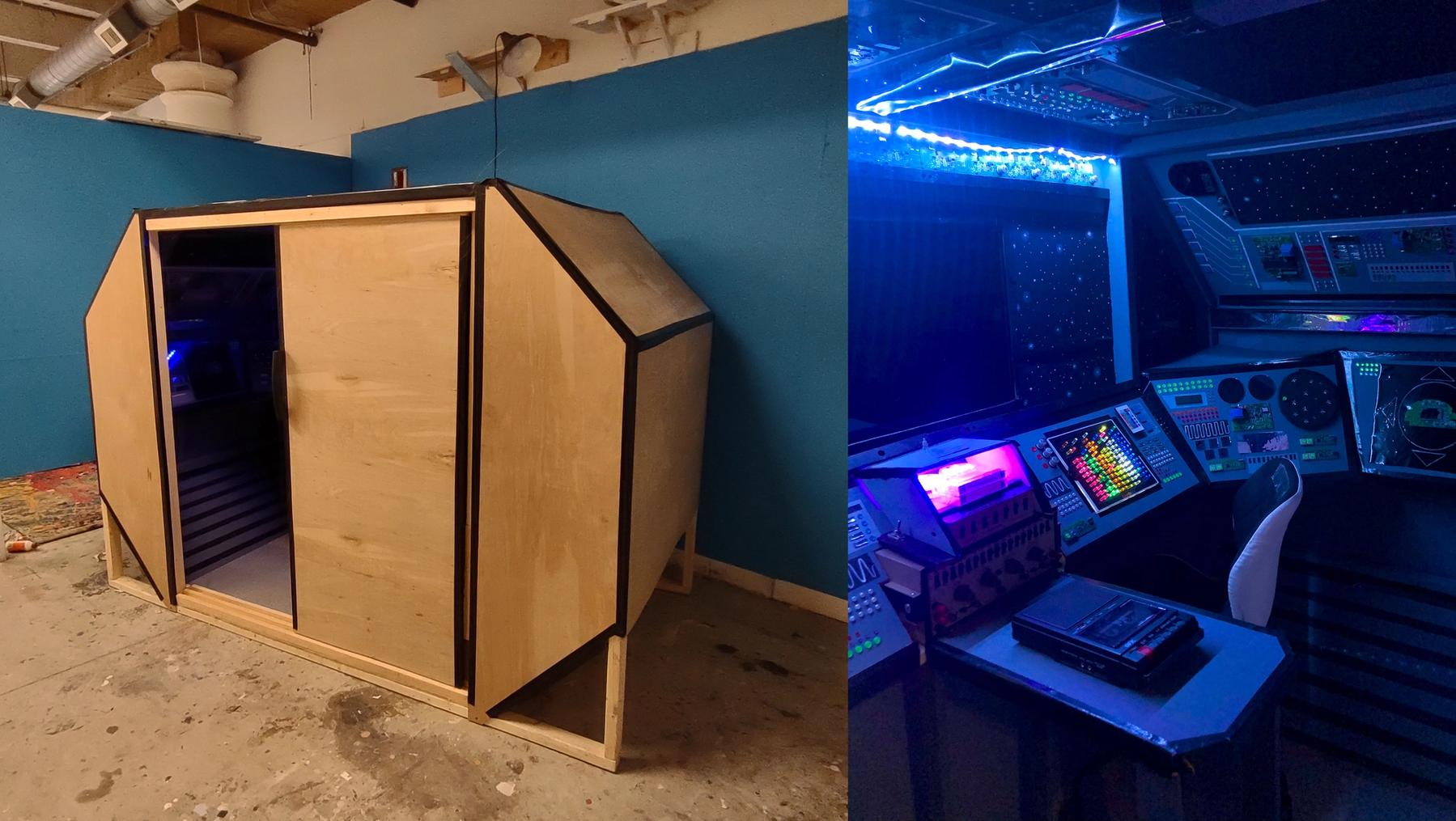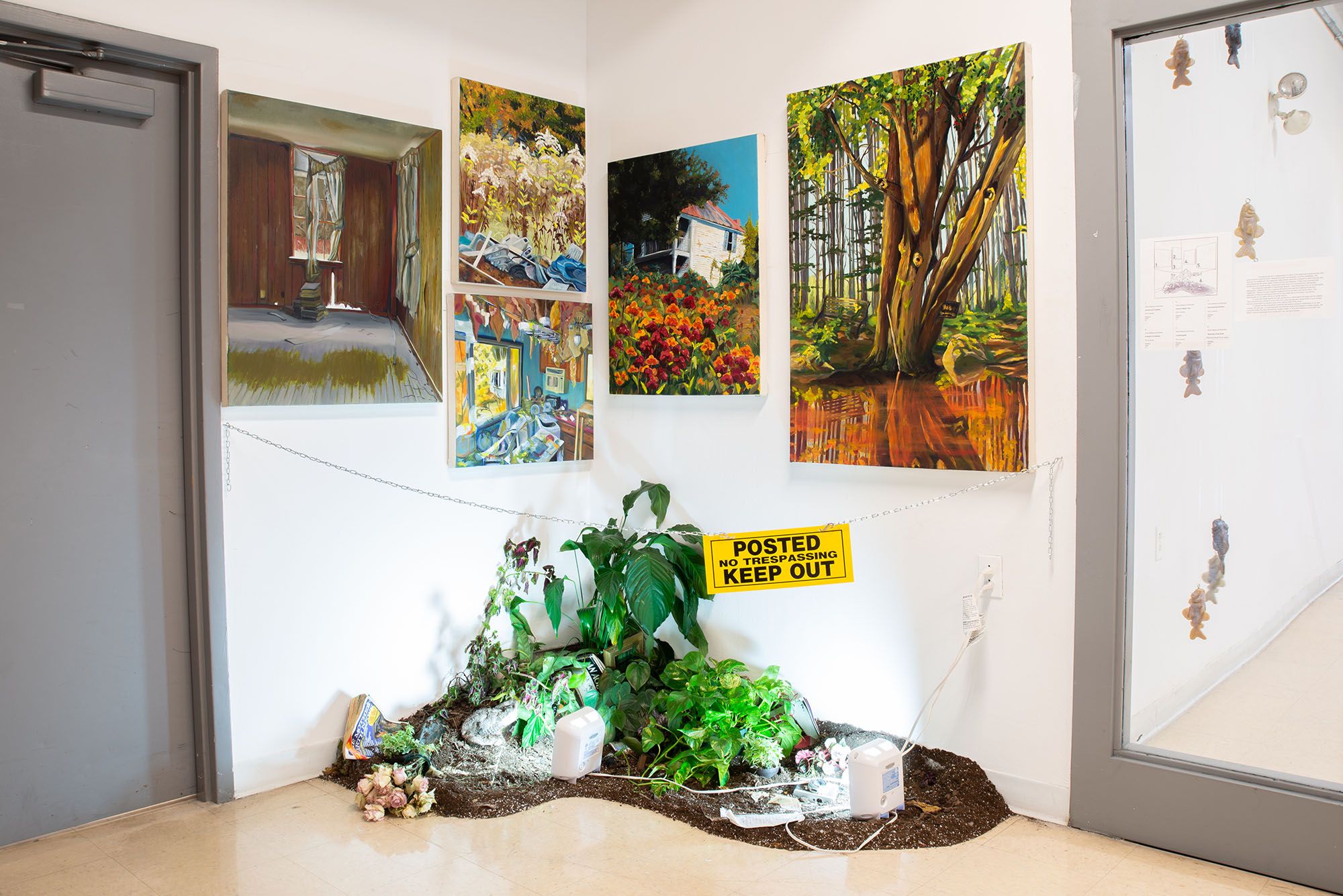Areas of Study
Bachelor of Fine Arts in Painting
Painting Program Description
As a Painting major, you will discover and give form to what inspires you in an environment that supports your creative process and ideas. You will gain a deep understanding of the fundamentals as well as pursue more experimental approaches to the practice of painting in order to develop a fulfilling, sustainable, and self-directed studio practice.
The interdisciplinary Painting curriculum is designed to strengthen your ability to make, which includes reading, writing, thinking, and speaking about your work.
As a painter, you will learn to:
- Choose appropriate techniques, tools, and materials to develop a visual vocabulary in service of content.
- Maintain a disciplined studio practice.
- Participate in independent and group critical discourse.
- Work with visiting artists and scholars.
- Gain a comprehensive understanding of historical and contemporary painting, and familiarity with topical issues of contemporary art.
- Participate in field trips to cities such as New York City and Boston.
- Develop a self-directed body of work built on research into significant historical, cultural, and personal contexts.
- Leave prepared with the best practices for maintaining and advancing your work.
Our experienced Painting faculty will work closely with you within the supportive community of the program to ensure you have the cognitive and technical skills needed for advanced practice while you establish an aesthetic voice, approach, and perspective that is uniquely yours.
Life After Graduation
After graduating, Maine College of Art & Design Painting alumni continue to develop their careers by exhibiting their work, attending artist residencies and graduate school, and receiving grants and fellowships. Painting alumni find fulfilling careers as practicing artists, curators, educators, arts administrators, museum staff, art critics, gallery directors, and non-profit arts leaders.
Gallery

















Faculty
Sample Courses
- PT 100 Foundations in Painting
- PT 120 Painting from Perception into Imagination
- PT 200 Painting: Light & Space
- PT 223 Adventures in Abstract Painting
- PT 224 Painting the Human Form
- PT 225 Water Media
Workspace & Tools
Painting majors have 24/7 access to private studios during their third and fourth years, semi-private shared studios in their second year, and a shared studio in their first year. The painting facilities include storage space as well as shared critique and workspace. Painting majors have access to easels, work tables, airbrushes, digital projectors, DSLR cameras, tripods, light sets, sanders, drills, brad guns, clamps, and a compound miter saw.
Learning Outcomes
Students will:
- Develop their perceptual skills.
- Understand the nature of processes within their work.
- Select appropriate techniques, materials, and forms to develop a visual vocabulary in service of content.
- Maintain a disciplined studio practice.
- Employ research strategies to support the development of personal concepts into visual form.
- Demonstrate an understanding of the diverse histories of painting, contemporary painting movements, and familiarity with topical issues of contemporary art.
- Employ appropriate levels of craftsmanship and technical skill in creating paintings.
- Demonstrate a professional practice within the field of painting.
- Speak critically about the work of others from both historical and contemporary perspectives.
Course of Study
Foundation Year
Fall
- FN 101 Digital Imaging
- FN 109 3D: Materiality
- FN 113 Two-Dimensional Design
- Studio Elective
- EN 100 English Composition
- SEM 100 First Year Seminar
Spring
- DR 100 Introduction to Drawing
- FN 110 4D: Space & Temporality
- FN 108 Research & Inquiry – Studio
- SEM 108 Research & Inquiry – Academic
- AH 101 Art History Survey I
Sophomore
Fall
- PT 100 Foundations in Painting
- Drawing Elective or Approved Studio
- Studio Elective (Student Choice)
- AH 102 Art History Survey II
- Academic Elective
Spring
- PT 221 Independent Projects in Painting
- Drawing Elective or Approved Studio
- Studio Elective (Student Choice)
- AH 250 Critical Approaches to Contemporary Art
- Academic Elective
Junior
Fall
- PT 321 Painting Majors Studio
- SEM 353 Junior Seminar – Fine Art Topics & Practice
- Approved Studio Elective
- Art History Elective
- Academic Elective
Spring
- PT 322 Painting Majors Studio
- PT 351 Introduction to the Discipline
- Approved Studio Elective
- Art History Elective
- Academic Elective
Senior
Fall
- PT 421 Painting Majors Studio
- SEM 451 Professional Studio – Fine Arts
- Approved Studio Elective
- 2 Academic Electives
Spring
- PT 422 Painting Majors Studio (6 credits)
- SEM 452 Senior Synthesis
- 2 Academic Electives
Course Catalog Listing
Painting Program FAQ
What is the best degree for painting?
A Bachelor of Fine Arts (BFA) in Painting is the best degree for those serious about developing their artistic voice and technical skills.
At Maine College of Art & Design, our Painting degree combines foundational training in composition, color theory, and paint design with advanced studio practice and conceptual exploration.
Students engage in research, experimentation, and collaboration to create meaningful work and prepare for professional careers in the arts and painting industry.
What can I do with a painting degree?
A painting arts degree opens the door to various creative careers, including:
- Fine artist: Exhibit and sell your work in galleries or commissions.
- Illustrator: Create artwork for books, magazines, or commercial projects.
- Muralist: Design and paint large-scale public or private works.
- Art educator: Teach painting at schools, colleges, or community programs.
- Creative entrepreneur: Launch a business in paint design, custom artwork, or art consulting.
- Art director: Work in advertising, publishing, or media, guiding visual concepts.
How do I start my career as a painter?
- Develop a studio practice: Build strong artistic habits through regular painting, experimentation, and refinement.
- Create a portfolio: Showcase your best work for gallery submissions, grants, or job applications.
- Network with artists and professionals: Connect with galleries, collectors, and fellow artists to gain visibility.
- Seek exhibitions and commissions: Display work at local galleries, online platforms, and community events.
- Consider further education: Residencies, workshops, or an MFA can expand opportunities and expertise.
What qualifications do I need to be a painter?
Earning a Bachelor of Fine Arts in Painting from Maine College of Art & Design gives you more than just technical ability — it prepares you for a sustainable, lifelong career in the arts.
With a Bachelor of Fine Arts in Painting, you'll gain:
- Refined technical skills through hands-on studio practice in color, composition, and a range of traditional and contemporary painting techniques.
- A strong artistic voice developed through individualized mentorship and critiques that push your creativity and vision.
- A professional portfolio that reflects your growth and readiness for galleries, grant applications, and commissions.
- A creative community and connections that continue long after graduation, supporting your evolution as a painter.
Where should a beginner painter start?
The best place to begin is with a foundation that blends experimentation with structure, exactly what the Bachelor of Fine Arts in Painting at Maine College of Art & Design offers.
As a student, you'll:
- Explore materials and techniques with guidance from practicing artists and access to professional-grade studio spaces.
- Build core skills in drawing, color theory, surface preparation, and visual storytelling.
- Develop a consistent practice through immersive coursework that fosters discipline and artistic momentum.
- Grow through exposure to art history, contemporary art movements, and critical discussions.
- Receive expert feedback from faculty and peers, helping you shape your artistic identity and push your work further.
Apply for Our BFA and Major in Painting
Your journey as a painter starts here.
At Maine College of Art & Design, our Bachelor of Fine Arts in Painting provides the skills, mentorship, and creative space you need to thrive in the world of arts and painting. Whether you dream of exhibiting in galleries, launching a creative business, or exploring new forms of paint design, our program will help you build a strong foundation for success.
Now is the time to invest in your artistic future. Apply today and take the first step toward turning your passion for painting into a career.







